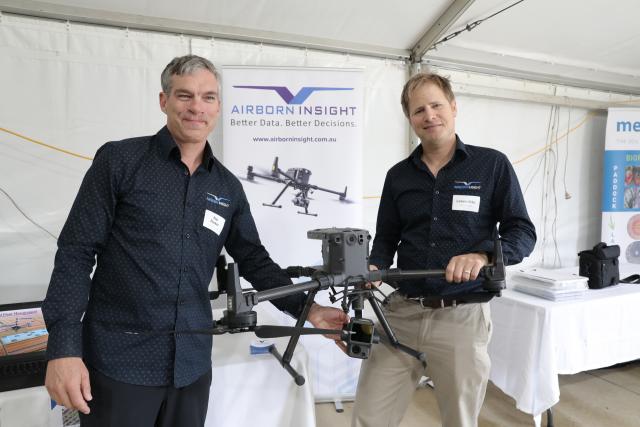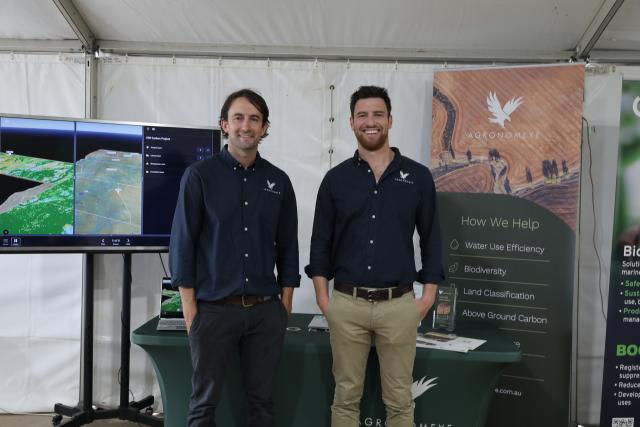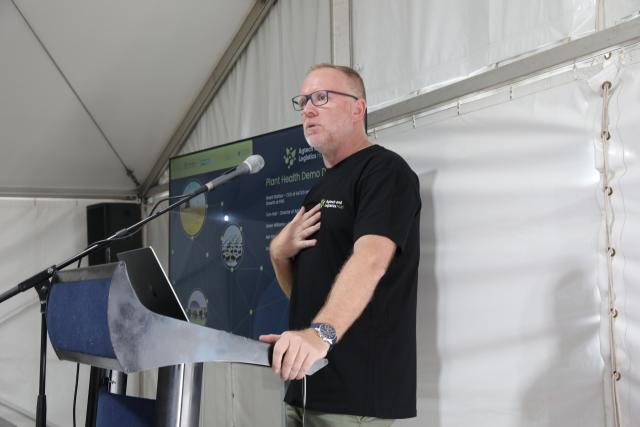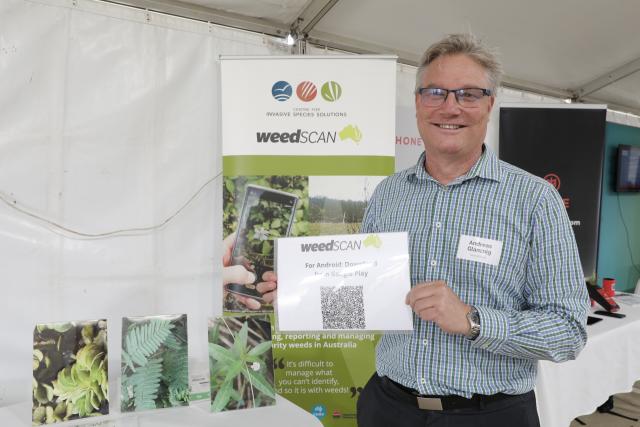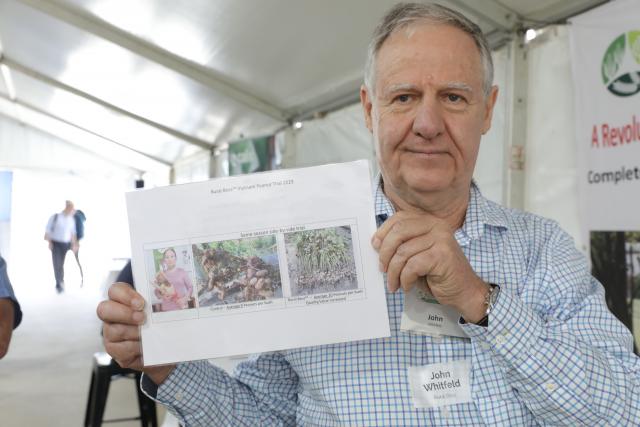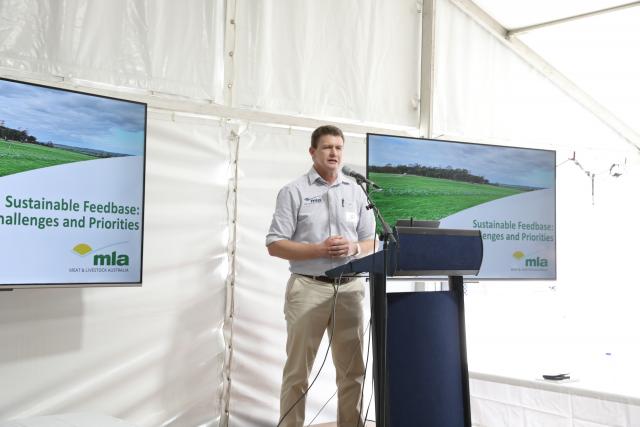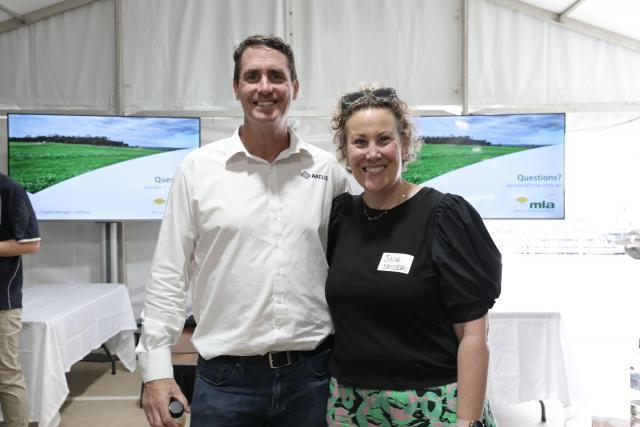
Digital versions of farms, autonomous vehicles that identify and control weeds, a satellite mapping platform and drones dominated discussions at an agtech event in Toowoomba.
Cutting-edge plant health innovations were showcased during the OpenGround Demo Day, held at the Agtech and Logistics Hub last month.
The event featured trailblazers in agtech involved in the OpenGround plant health program, run in conjunction with Meat & Livestock Australia.
In all, 150 people immersed themselves in the latest tech with the potential to transform crop and pasture health, including growers, producers, agribusinesses, venture capital firms and academics.
OpenGround participants who demonstrated how their products and services could improve plant health solutions included Tim Howell and Stu Adam, the founders of Agronomeye.
Agronomeye’s digital twins and AgTwin platform deliver on-farm insights that are actionable and marketable in areas such as erosion control, carbon farming, biodiversity, animal welfare and sustainable land management.
Using highly detailed imaging technology combined with advanced data modelling, their goal is to enable farmers, land managers and their stakeholders to make informed, risk-free decisions that are nature-positive and profitable.
“Agronomeye provides the fundamental digital building blocks to help contextualise and transform farmland management,“ Mr Howell said.
“Through the creation of our digital foundation and AgTwin platform, we offer a comprehensive solution to drive productivity and sustainability.“
Another OpenGround participant who demonstrated their tech was Tim Neale, who co-created DataFarming with wife Peta.
DataFarming’s platform allows farmers and agronomists to gain a range of insights, including pasture growth, where to target crop and pasture issues and where to soil test.
DataFarming is looking to enhance pasture health and management by using satellite data to determine the amount of available green feed in a paddock.
This is particularly important in intensively managed pasture systems such as dairies, sheep/wheat properties and high-value cattle operations.
Their technology is a leading global digital agriculture platform, covering 36,000 farms across 50 countries. Of those farms, 70 per cent are livestock producers.
Kelpie was also at the demo day, demonstrating its autonomous ground vehicle technology, which uses an advanced, autonomous navigation system and AI-based vegetation recognition to identify weeds to avoid over spraying.
AirBorn Insight exhibited one of its drones, which are equipped with advanced sensors to collect data on plant health and traits.
Researchers analyse the data to understand plant health, growth patterns, stress responses and other phenotypic characteristics as affected by genetics, treatments, environment and management practices.
Agricultural AI company InFarm demonstrated how its technology allowed farmers to target weeds, saving up to 95pc in herbicide use on-farm.
The other OpenGround participants who demonstrated at the OpenGround Demo Day were NonTox, Hone, WeedScan and Calix.
Agtech and Logistics hub manager Owen Williams said OpenGround was an industry-leading program with a focus on solving important industry challenges.
“OpenGround is a unique opportunity, with the challenge of bringing together scale-ups and other innovators with market-ready innovations and leading minds from academia, industry, agribusiness, research and government to collaborate on solutions to address challenges around plant health,” he said.
“With a growing world population, a changing climate and the rise of Environmental, Social and Governance (ESG), plant health has never been more important.
“It is critical to address challenges around plant health given our food supply relies on plants that can grow and produce strong yields in the face of pests and environmental challenges.”


